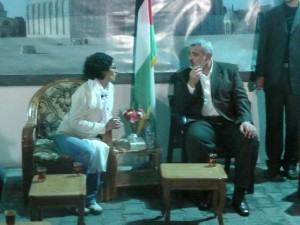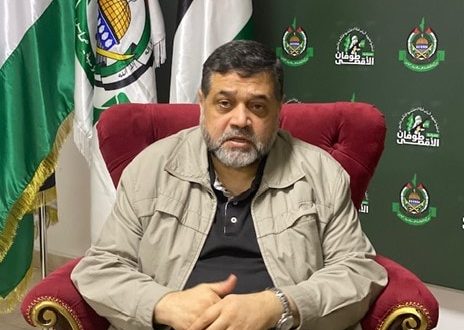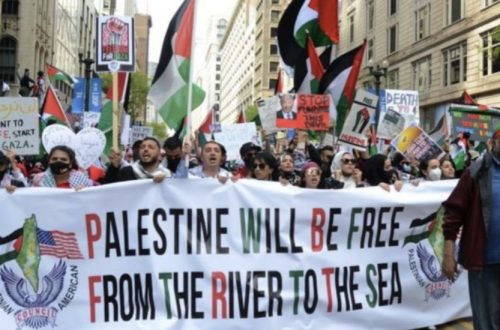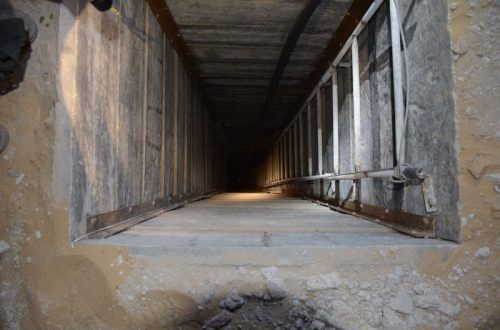Last month, the Guardian’s literary critic, Nicholas Lezard reacted with incredulity at the suggestion that the Mavi Marmara was not a genuine aid ship, but a heffalump trap, into which the IDF foolishly stumbled:
I was quite amazed, for instance, when a link was posted on Facebook to some overheard mutterings, full of bravado, which purported to “prove” that the activists on the Mavi Marmara were actually looking for a fight. When I suggested, perhaps facetiously, that this accounted for the people who were shot in the back, I was very quickly unfriended.
Well, let us set to one side the legitimacy or otherwise of Operation Sea Breeze, as the IDF raid on the flotilla in May was named. (One should at least salute the officer who dreamed that codeword up: the spirit of George Orwell can turn up in the most unlikely places.) It might be, after all, that my gut instinct is wrong, and that the debacle was in fact a work of supreme cunning on the part of Hamas, deliberately engineered in order to discredit Israel in the eyes of the world.
…
Well, I know what’s going to happen now. I and the blameless Review section of this newspaper will be denounced as either Hamas stooges, antisemites, or both.
I wonder what Lezard would have made of last night’s Panorama, “Death in the Med”, a summary of which can be read here. If he watched it, he might have begun to question his “gut instinct”.
Most of the information contained in the programme has been covered by Harry’s Place in the past. We were told of the links between IHH and terrorist organisations including Hamas, and its closeness to the Hamas-supporting Turkish government. We were shown some (although not all) of the footage of IHH activists boasting about their plans to fight Israeli soldiers and achieve martyrdom. We were treated to the exchange between the Israeli Navy and the Mavi Marmera, where the offer was made to transfer the “aid” to Gaza via Israel, and were told to “go back to Auschwitz”. Finally, we were shown famous footage of Israeli soldiers shinning down a rope, and being beaten with iron bars, stabbed, shot at, and finally taken below decks by a small hard core of IHH activists who had – according to the captain – effectively taken over the ship.
There is little mystery about what happened on the Mavi Marmara. The IDF expected a sit-in. Instead, they walked into an ambush. What was interesting, however, about the programme is the testimony of one IHH activist, who prevented the soldiers from being killed:
“Understandably, some people were saying – we should do to them what they did to us,” Murat Akinan told me.
“But I calmed them down saying according to our religious beliefs we should treat them and take them back.”
The testimony of an Israel soldier bore this account out.
Although the information contained in last night’s Panorama will have been familiar to you, if your information on the Middle East comes from the Guardian, you might well have found the programme hugely confusing and its claims both novel and surprising.
A case in point: John Crace’s review in today’s Guardian. Evidence which most of us will have seen, months ago, was to him “a great deal more revealing than anything that has appeared so far”. Nevertheless, so unfamiliar was the thesis of Panorama, that Crace’s reaction is to blink at it, with the gormless expression of a new-born calf:
Yet for all the previously unseen footage from onboard the Mavi Marmara and the interviews with both the Turkish peace activists and the Israeli commandos, it was still hard to piece together what exactly did happen.
There was an admission from a senior Israeli that the commandos had encountered more resistance than expected and that perhaps they ought to have thought twice before sending in the helicopters, but the bigger questions went unanswered: who fired live rounds first? Why did the Israelis think it was acceptable to attack an aid convoy in international waters? Was the Mavi Marmara actually carrying aid to Gaza?
In fact, the answers to most of these questions were canvassed by the programme. The IDF used paintball guns and stun and smoke grenades while attempting a first, seaborne attempt to take the ship. They palpably did not fire while they were shimmying down a rope from a helicopter. Guns were taken from the soldiers when they were beaten and captured (Ken “Sad Clown” O’Keefe says he removed the bullets from the one he took). The soldiers then reported live fire – something they evidently did not expect from the sound of panic in their voices – after which permission to use live ammunition was given. IHH activists have claimed that Israeli soldiers fired live rounds from the very start: the absence of any such incident on any other boarding, and the difficulty of firing while climbing down ropes, suggests that this is unlikely to have happened.
Was the Mavi Marmara actually carrying aid to Gaza? Not really, no:
The Israelis – and Corbin, surprisingly – claimed the Mavi Marmara was carrying worthless aid, because the medicines were out-of-date – though these seem a fairly precious resource in a war zone.
John Crace is surprised by Panorama’s evidence that the medicine that the flotilla was carrying was out of date and useless. That information wouldn’t have surprised Al Jazeera or indeed Viva Palestina:
Panorama also pointed out that Gaza is not suffering from a shortage of food or medicines (pace, Crace, Lezard): but significantly, of building material.
So what was the purpose of the Mavi Marmara expedition? On that issue, so it seems, both the IHH and Israel are in agreement. The intention was to challenge the right of Israel to maintain a blockade in a war, to “resist” any attempt by Israel to divert the ship to another port, and to “spark international outrage” over the deaths of IHH activists killed during the rescue of the Israeli soldiers. That may not have been what all passengers on the ship would have expected: but it is most certainly what IHH thought would happen. They were quite right.
Lubna Masarwa, Free Gaza Coordinator, put it very well:
I didn’t want anyone to die. But there is no resistance, there is no freedom, without paying a price.

Lubna Masarwa with Hamas leader Ismail Haniyeh in Gaza
Crace concludes:
No one came out of these exchanges particularly well – though the Palestinians won easily on points
That is so, only if you believe, as the IHH and the Free Gaza movement do, that the best way to promote the cause of Hamas, is to achieve martyrdom while delivering unusable medical “aid”.
That is a view that is not confined to Guardian writers, Islamist politicians, or the far Left. You will find it at the highest levels of the Tory Party, too.
You can watch Death in the Med on iPlayer or on Youtube (Part1 and Part 2.)



